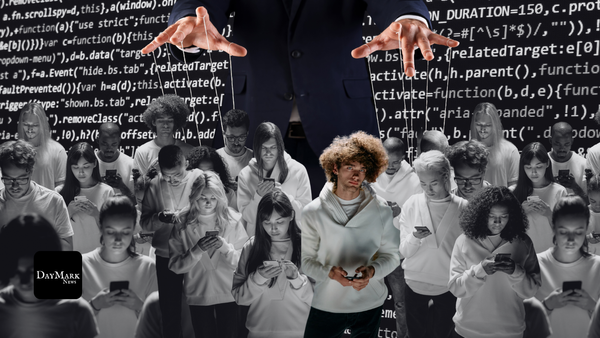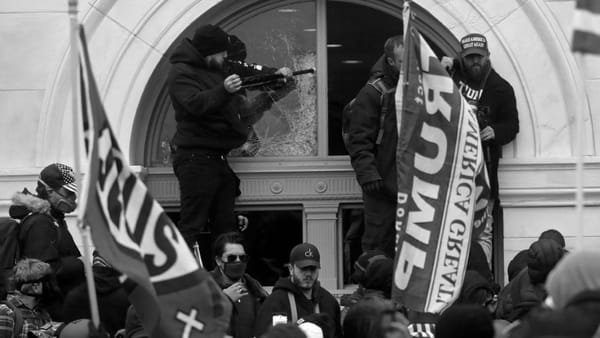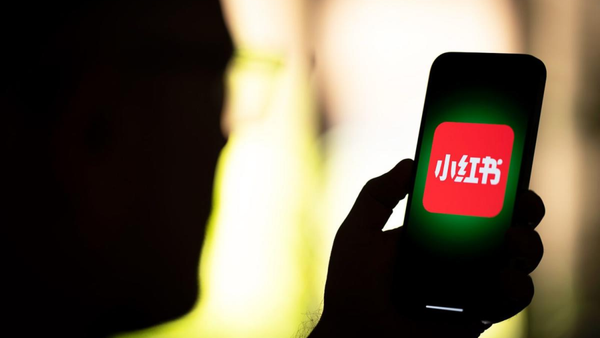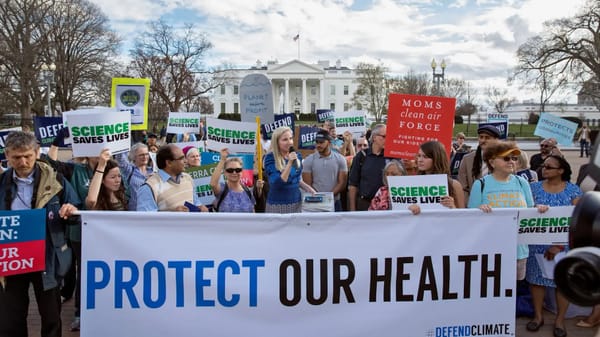Meta’s Fact-Checking Cop-Out: A Leap Into the Abyss
In a bold, reckless move, Meta has decided that truth is just too messy to manage. Out with third-party fact-checking, in with a “community notes” free-for-all that dumps the Herculean task of combating misinformation onto the very users most likely to spread it.
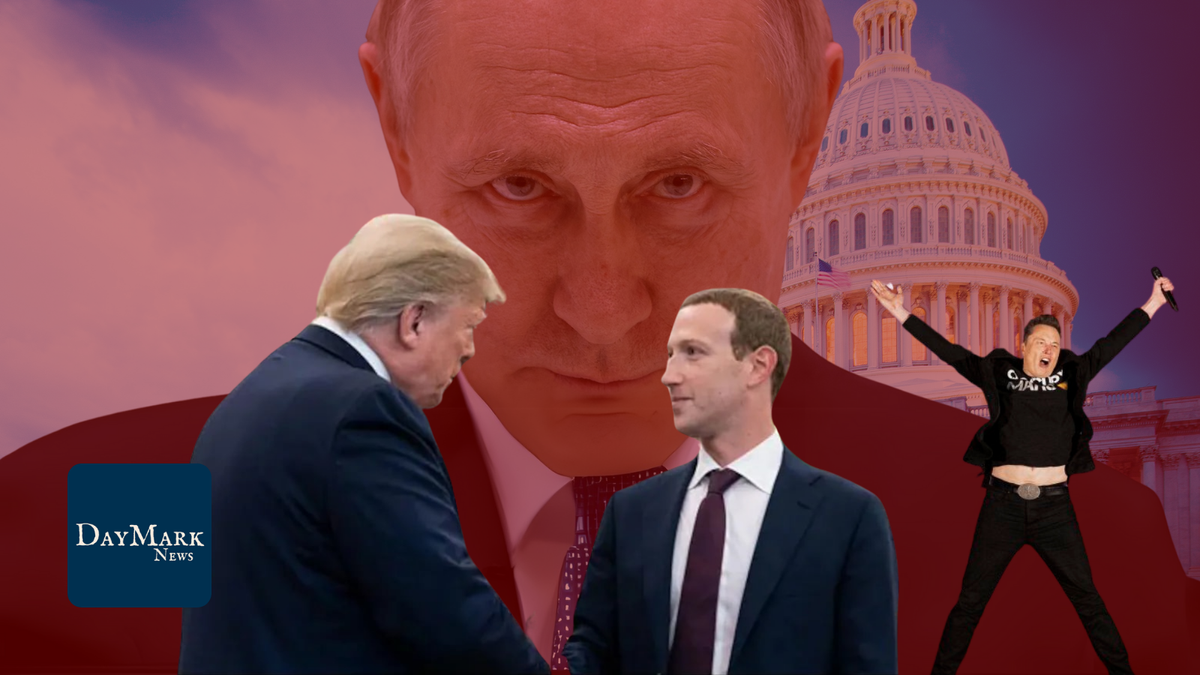
By I.V. Hill | DayMark News
Mark Zuckerberg must think we’re all suckers.
In a bold, reckless move, Meta has decided that truth is just too messy to manage. Out with third-party fact-checking, in with a “community notes” free-for-all that dumps the Herculean task of combating misinformation onto the very users most likely to spread it. Zuckerberg pitched this shift as a victory for free speech, but let’s call it what it is: an abdication of responsibility.
Facebook’s lofty mission statement promises to “give people the power to build community and bring the world closer together.”. Yet, Mark Zuckerberg, the "third-richest person in the world," has built his empire without ever selling a tangible product. Think about that for a second: no widgets, cars, or real estate—just algorithms, data, cyberbullying, and ad revenue. It’s an odd legacy for a man whose platform is more likely to connect you to anonymous trolls than a supportive community.
Zuckerberg, the tech overlord who’s somehow both everywhere and nowhere, says fact-checking has become “too contentious.” Translation: It’s bad for business. After all, labeling lies as lies tends to upset the people telling them. So, Meta’s new approach is to let the mob decide what’s true. What could possibly go wrong?
It’s as if Meta took a long, hard look at the digital Wild West it helped create and said, “Let’s make it wilder.”
A Recipe for Chaos
Here’s how it’s supposed to work. When someone posts a dubious claim—say, that the moon landing was staged or that vaccines contain microchips—other users can weigh in with corrections. These “community notes” will provide context, apparently turning Facebook into some crowd-sourced Snopes.
Sounds great in theory. But in practice? It’s like putting the fox in charge of the henhouse and expecting the chickens to thrive.
Lisa Gilbert, co-president of Public Citizen, didn’t mince words: “Asking users to fact-check themselves is tantamount to Meta saying the truth doesn’t matter.” She’s right. This isn’t empowerment; it’s chaos dressed up as innovation. It’s handing a flamethrower to a pyromaniac and hoping they’ll roast marshmallows instead of torching the place.
And let’s be honest: The kind of person who writes “DO YOUR OWN RESEARCH!” in all caps on Facebook isn’t exactly itching to add nuance to a debate. They’re more likely to double down on their nonsense, buoyed by the echo chamber Meta’s algorithms so conveniently provide.
Mark Zuckerberg apologizes to families of children harmed by social media
The Perils of the Free-For-All
Misinformation, as countless studies have shown, spreads faster than the truth. It’s juicier, more shocking, and far more clickable. During the 2020 election, for example, false claims about voter fraud exploded across social media like confetti at a MAGA rally. Meta’s fact-checking system—while imperfect—helped slow the tide. Now, the floodgates are open, and the deluge is coming.
What’s most maddening is the timing. Just weeks after an election, Zuckerberg decides to gut the very system designed to protect voters from disinformation. It’s like a lifeguard abandoning their post because the water’s too choppy. The stakes? Oh, just democracy, public health, and the survival of objective reality.
Consider this: A Pew Research study found that nearly half of Americans encountered false or misleading information on social media in the months leading up to the 2020 election. That was with fact-checking in place. Now imagine the damage without it. We’re heading straight into the heart of the misinformation storm, and Meta just slashed its sails.
Zuckerberg’s Blind Spot
Zuckerberg loves to talk about connecting people, but he seems blind to what he’s connecting them to. Anti-vaccine propaganda? Sure. Climate change denial? Why not. Conspiracy theories about 5G mind control? You bet. The man who once promised to “move fast and break things” is now breaking something far more precious: people's fragile trust in what they read online.
And let’s not pretend this is some principled stand. It’s a business decision, plain and simple. Fact-checking costs money. It angers the wrong people. It doesn’t scale well. What does scale? Pushing the responsibility onto users and pretending it’s a bold step forward.
Regulators, Take Note
Meta’s move will undoubtedly attract the attention of regulators. The European Union’s Digital Services Act requires tech giants to take responsibility for harmful content. How does Meta’s laissez-faire approach square with that? Spoiler: It doesn’t. Fines are coming, and they’ll be well deserved.
In the U.S., bipartisan calls for social media accountability are gaining traction. Senator Amy Klobuchar summed it up nicely: “When misinformation is allowed to spread unchecked, our democracy suffers.” If that’s not enough to make Zuckerberg squirm, perhaps a few Congressional hearings will do the trick.
The Cost of Cowardice
What’s most galling is the sheer cowardice of it all. Meta isn’t standing up for free speech; it’s running away from the responsibility of moderating its platforms. Zuckerberg isn’t empowering users; he’s leaving them to fend for themselves in a jungle of lies and half-truths.
Gilbert called this a “leap into the void,” and she’s right. By abandoning fact-checking, Meta tells the world that truth is someone else’s problem. But here’s the thing: Everyone loses when the truth becomes optional except the liars.
So, thank you, Mr. Zuckerberg, for reminding us that you’re firmly on the sidelines in the battle for truth. The rest of us will have to clean up the mess.
This article is licensed under Creative Commons (CC BY-NC-ND 4.0), and you are free to share and republish under the terms of the license.
At DayMark News, we are committed to exposing the rise of authoritarianism and its threat to democracy. In a time when disinformation spreads like wildfire and democratic institutions face relentless attacks, we need your support to keep the fight alive.
Investigative journalism is our weapon against authoritarian ideologies. We delve deep to uncover the truths others would rather keep hidden, while providing actionable resources to empower individuals like you to defend our democracy.
We believe in transparency, integrity, and the power of a well-informed public. But maintaining a platform dedicated to fearless reporting and mobilization requires resources. We refuse to bow to corporate interests or compromise our mission. That's why we turn to you — our community.
Every donation, big or small, helps us continue our work. With your support, we can produce the in-depth analyses, breaking news, and educational tools needed to resist the rise of extremist movements and protect democratic values for future generations.
This fight belongs to all of us. Together, we can ensure that democracy not only survives but thrives. Please consider making a contribution today to keep DayMark News strong and independent.
Donate Now: Because Democracy Can't Defend Itself.

 Donate
Donate
